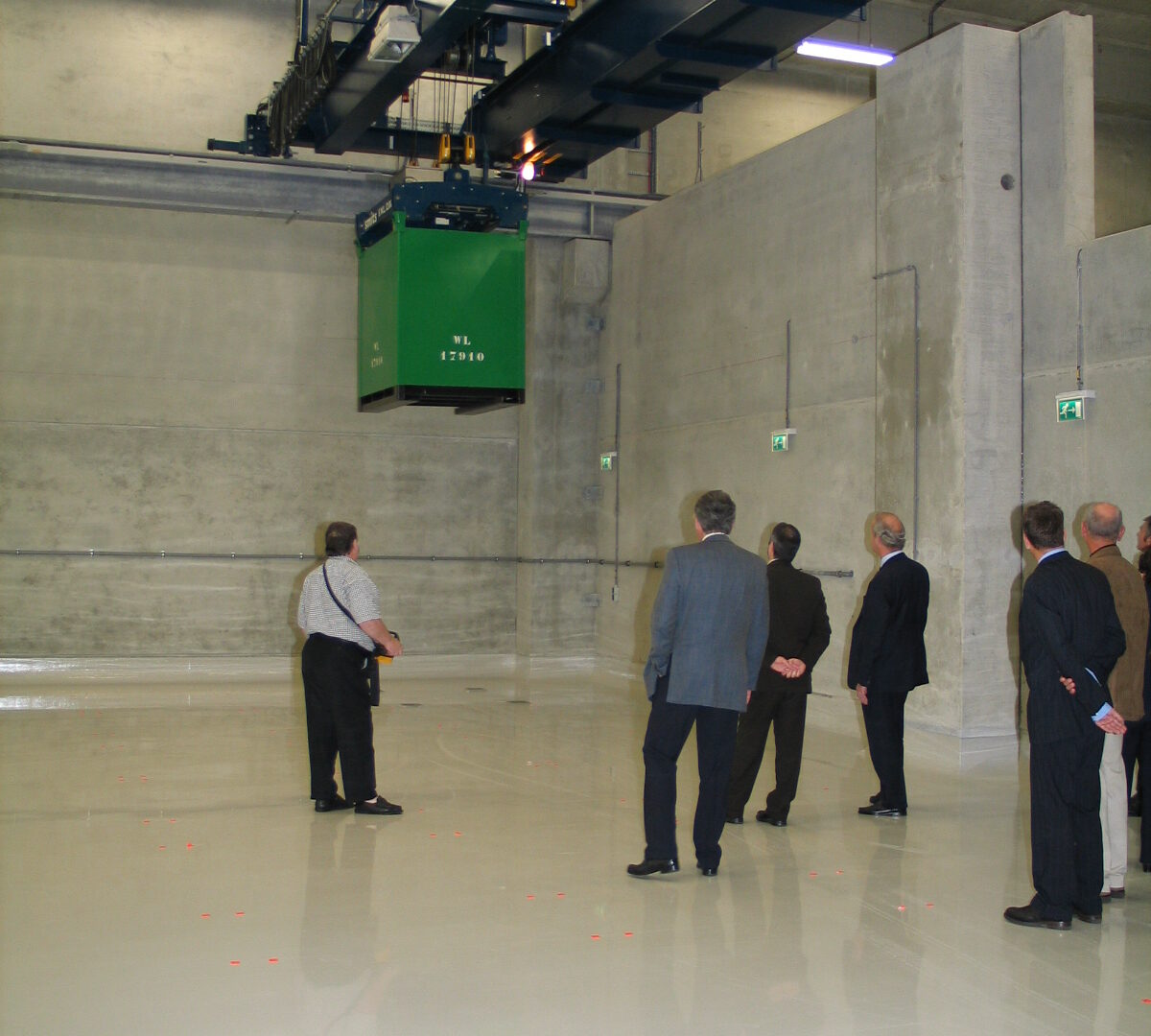From a WG to an Association
Over the following decade, both the fundamental concepts and the practical aspects of multinational waste management solutions were also researched and promoted by the IAEA, with central involvement of ERDO-WG members. The ERDO Association has established working relationships with a wide circle of organisations involved in radioactive waste management inside Europe and globally.
As a result:
- There is a sound knowledge base on the key issues associated with the economics, legal and political aspects, and the societal implications of shared waste management solutions
- There is experience in analysing scenarios for how various types of shared facility might evolve and become reality
- The knowledge basis is being further enhanced within the ERDO Association for the benefit of its members
Interest in the feasibility of a shared multinational disposal
Interest in the feasibility of countries sharing a multinational repository for disposal of nuclear wastes is increasing. Below is a link to a short presentation of current status of national policies – most specifically in Europe – and legislation are illustrated.
2021 Nuclear Inter Jura Virtual Congress – WORKING GROUP 5 – Waste Management
International Nuclear Law Association – United States Chapter
Policy, strategy and legal issues related to implementing a regional repository
By Charles McCombie, ERDO/ARIUS Associations and Leon Kegel, ERDO Association/ARAO
ERDO specialists contribute to new dual track study on Jordan
A new study, conducted by the Jordan Atomic Energy Commission (JAEC) in coordination with, and supported by, the United States Department of Energy (USDOE), examines the details of the dual track approach to radioactive waste management, reviewing international experience and activities and assessing the benefits and challenges involved. The team of authors collaborating on the two-volume report (which can be downloaded here) included Leon Kegal, who represents the Slovenian ARAO in ERDO, and Neil Chapman and Charles McCombie from the ERDO Secretariat. The following extract from the report’s abstract summarizes the contents.
Jordan is assessing options for the introduction of a nuclear power program. All nuclear power plants generate radioactive wastes that will eventually require deep geological disposal, although this would not be necessary in Jordan for at least fifty years. Nevertheless, the international best practice for new nuclear nations being followed by Jordan, along with prudent national planning, mean that options should be considered today for how to handle the eventual disposal needs.
it is not necessary for every country to have its own deep geological repository (DGR) and there are considerable technical, economic and political benefits to be gained from participating in a multinational repository (MNR), especially if implemented on a regional basis. Consequently, Jordan is considering this option in parallel with developing its own national DGR program. This ‘dual track approach’ has the twin advantages that it develops Jordan’s own expertise in geological disposal, allowing more effective participation in any MNR project, as well as addressing the contingency that no MNR solution becomes available.
The dual track approach does not require a decision on which track to follow for many years, but it does require an early commitment to active measures to explore the two options. However, none of the activities involved in a dual track approach requires significant additional resources beyond those that will, in any case, be necessary to develop a national nuclear power and radioactive waste management program.
The study concludes that there are significant benefits for Jordan to become proactive in adopting the dual track approach in its national policy. This could open the door for exploring MNR solutions, in particular with regional partners. It also suggests a range of specific activities to develop and enhance Jordan’s involvement and capabilities in exploring DGR/MNR solutions.

